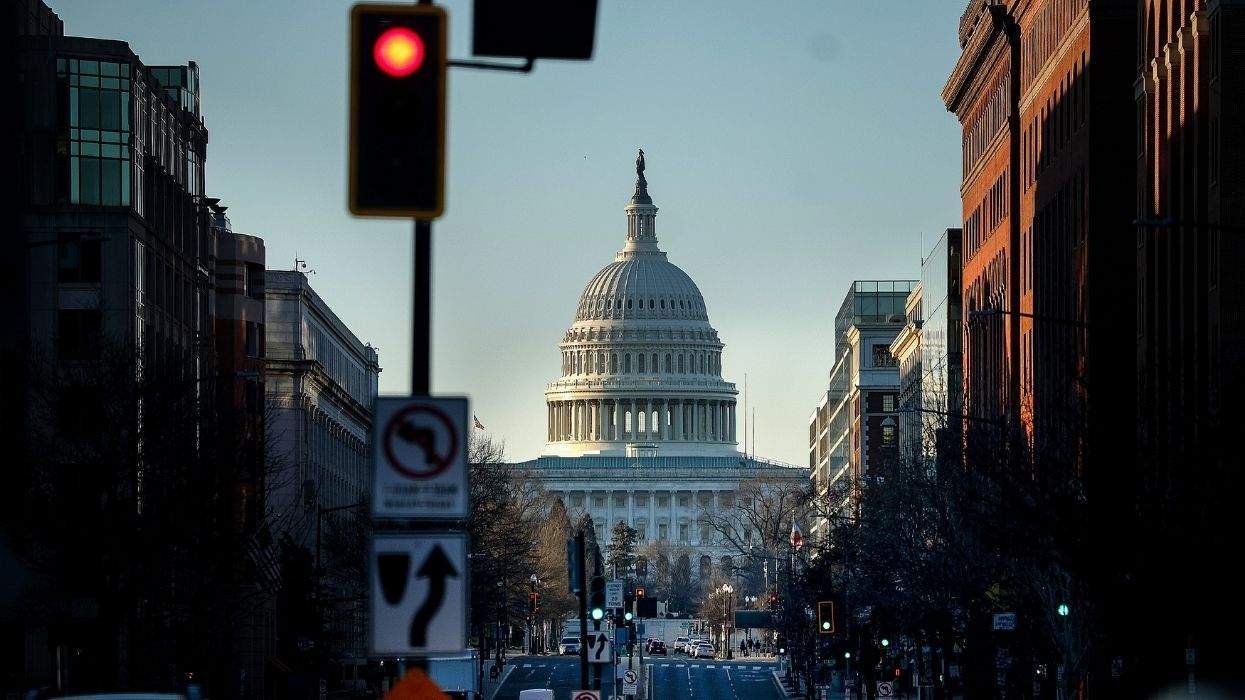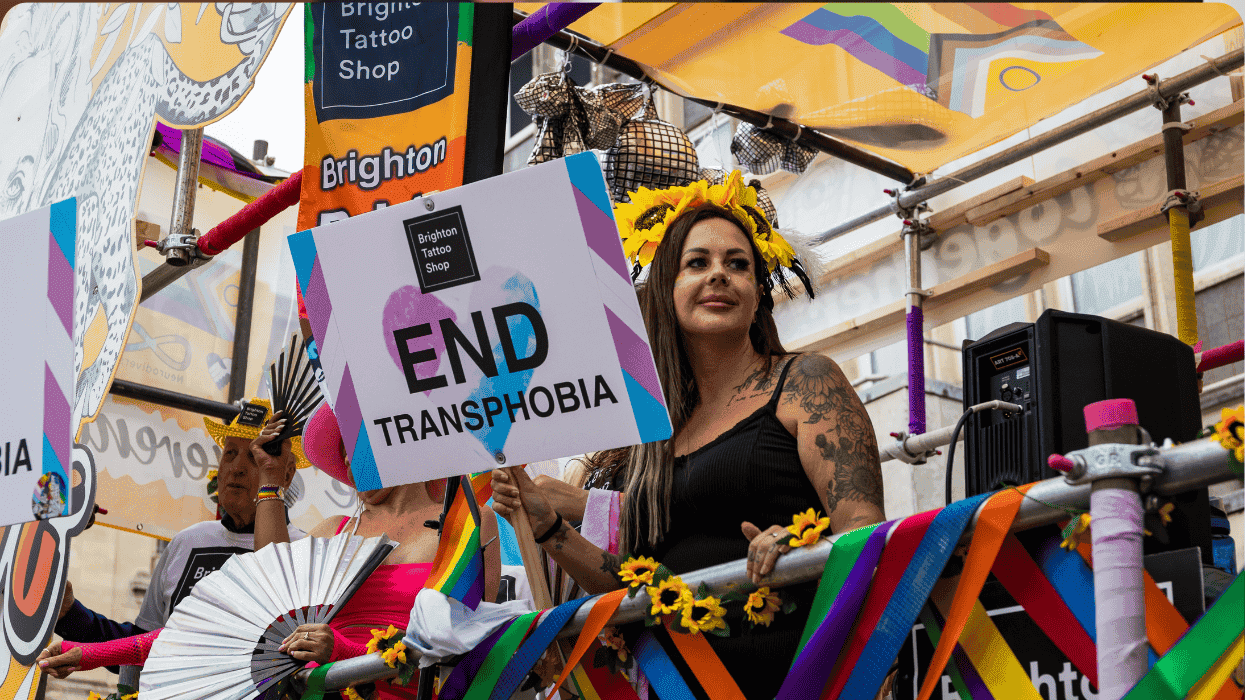As coverage of Russia's antigay policies explodes across the Internet, it may seem that President Vladimir Putin and his fervor for the so-called homosexual propaganda law is the best thing that ever happened to America's gay rights involvement abroad. Having Putin -- a ruler many Americans still view with Cold War suspicion -- become the poster boy for antiquated views on LGBT people has provided the perfect villain for reframing the debate in the heart of America.
But in part, Russia's deplorable missteps simply arrived at a time when American politics had finally caught up to our stated diplomacy, allowing U.S. politicians to stand on firmer moral ground abroad.
When the human rights of lesbian, gay, bisexual, and transgender individuals were first unequivocally declared a U.S. foreign policy issue, Secretary of State Hillary Clinton stood before a packed room of more than 500 State Department employees at Foggy Bottom in June of 2010.
"Just as I was very proud to say the obvious more than 15 years ago in Beijing," she said, channeling another famous speech, "that human rights are women's rights, and women's rights are human rights -- well, let me say today that human rights are gay rights, and gay rights are human rights, once and for all."
At the time, the nation's military was still systematically discriminating against its own members, she and President Obama had yet to declare their support for marriage equality, and the Supreme Court was a few years away from gutting the heart of the objectionable Defense of Marriage Act.
While gay news outlets swooned over the secretary's statement, mainstream media -- and perhaps America -- seemed unpersuaded. Though Uganda's "kill the gays" bill had garnered national attention when it came to light in the fall of 2009, the U.S. government didn't yet seem to have the moral authority to claim a foreign policy initiative that was still dubious at home.
It wasn't until a year and a half later, when Clinton delivered a 30-minute speech on the matter at the United Nations in Geneva, that the revelatory concept grabbed mainstream headlines.
"I come here before you with respect, understanding, and humility," she told a room rife with divergent cultures before dispelling myth after myth about gay and transgender individuals. "Like being a woman, like being a racial, religious, tribal, or ethnic minority, being LGBT does not make you less human. And that is why gay rights are human rights, and human rights are gay rights," Clinton affirmed again in December of 2011.
By that time, America was beginning to find its footing on the issue. "Don't ask, don't tell" had been abolished, and the Department of Justice had stopped defending DOMA -- signaling the all but certain demise of the baseless law.
Today, less than two years after Clinton's groundbreaking speech, U.S. officials are finally able to apply the moral force of progress here at home to their diplomacy abroad. In London several weeks ago, Secretary of State John Kerry called equality "one of our most important exports" while announcing that the State Department would begin treating the visas of same-sex spouses the same as those of heterosexual spouses.
And President Obama has gotten particularly bullish on the issue -- actually employing LGBT human rights as a diplomatic tool with enemies and friends alike.
When the president waded into the issue of Russia's antigay laws at a press conference earlier this month, it wasn't because he was queried about the subject directly.
"Will there be any additional punitive measures taken against Russia for granting asylum to Edward Snowden?" a reporter asked, referring to potential foreign policy fallout stemming from Snowden's disclosure of U.S. surveillance programs.
The president called Snowden just "one more in a number of emerging differences" between the U.S. and Russia before adding Syria and "human rights issues" to that list.
"Nobody is more offended than me by some of the anti-gay and -lesbian legislation that you've been seeing in Russia," Obama asserted, though he stopped short of supporting a proposed boycott of next year's Olympics in Sochi.
Two days prior, President Obama told NBC's Jay Leno more pointedly, "I have no patience for countries that try to treat gays or lesbians or transgender persons in ways that intimidate them or are harmful to them."
Sure, President Obama may have reveled a bit in skewering President Putin's policies, but he also embraced the topic two months ago while engaging in bilateral talks with President Macky Sall in the Republic of Senegal, where homosexuality is criminalized. The Supreme Court had just overturned section 3 of DOMA, and a reporter asked the president whether his administration would provide benefits to same-sex couples residing in states where their marriages still aren't legal.
In response, President Obama gave an elaborate answer -- hailing the ruling as "a victory for American democracy," recalling his phone call with victorious plaintiff Edith Windsor, and noting that government lawyers would be reviewing federal statutes even as he offered his personal belief that "if you've been married in Massachusetts and you move someplace else, you're still married."
But the president wasn't finished yet. He then turned his attention to Africa to make "a general statement" about the rights of LGBT people even though the topic had not surfaced in his discussions with President Sall.
"I want the African people just to hear what I believe, and that is that every country, every group of people, every religion have different customs, different traditions," Obama said. "But when it comes to how the state treats people, how the law treats people, I believe that everybody has to be treated equally. I don't believe in discrimination of any sort."
As one might expect, President Sall responded in kind. "Senegal, as far as it is concerned, is a very tolerant country which does not discriminate in terms of inalienable rights of the human being," he said. "But we are still not ready to decriminalize homosexuality."
President Obama reflected on that moment in his appearance with Leno, saying that differing views on gay rights "makes for some uncomfortable press conferences sometimes."
"But," he concluded, "one of the things that I think is very important for me to speak out on is making sure that people are treated fairly and justly, because that's what we stand for."
KERRY ELEVELD is a freelance writer, consultant, and former White House correspondent for The Advocate.















